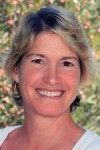By Eva Trieger


(North Coast Rep photo)
SOLANA BEACH, California — While most kids are reprimanded for “acting up,” not so in the Ellenstein household, where David and his younger brother, Peter, were encouraged to follow in their father’s footsteps. When I suggested that perhaps acting was in his genes, David quipped, “and in my corduroys.” I wanted to know more about Ellenstein’s personal journey into the theater, and pick his brain about the role and future of theater in America.
In a telephone interview last week, the Artistic Director of the North Coast Repertory Theater in Solana Beach, shared his own story as well as his vision for actors and theater for the next generation and beyond.
David’s father, Robert Ellenstein, was an actor and director in New York and Hollywood. He is recalled as “larger than life” and David believed that his loved his vocation with all of his being, making it the dream role for young David, who began his acting career in his backyard at age 4. The family moved from Queens to Los Angeles in 1957, to be a part of the Hollywood scene.
Continuing to act through elementary and junior and senior high school, Ellenstein had no other ambition than to follow his father’s lead. He proudly told me that every day he received lessons by watching his father, in lieu of a more formal education. At age 18, David received his SAG card, and by 19, he was a member of Actor’s Equity.
One of his most memorable acting experiences was that of playing Hamlet under the direction of his father. This six-actor version ran in the late 1980s and illustrated for David, precisely what the theater had to offer. David reported this was a “profoundly good” education and solidified his desire to continue the art form that his father passed on to him. Robert Ellenstein passed away in 2010, and David has kept his promise.
Ellenstein also learned the skill of direction from his father, and in 1982, directed his first show, Vanities, by Jack Heifner. This show introduced him to a great friend and mentor, Jonathan McMurtry. At Theater 40 in Beverly Hills the two collaborated and cemented a lifelong friendship and mutual admiration society. It was, in fact, McMurtry who lured Ellenstein to San Diego. McMurtry has been acting for over 60 years and is well known to the San Diego audiences for his roles on multiple stages, most notably The Old Globe, where he has performed in more than 200 productions.
David has acted with his wife, Denise, on a number of occasions, including a cruise ship run where the two performed “Love Letters.” More recently, while starring as Tevye, at Moonlight Amphitheater, son Will shared the stage. Ellenstein related that his most favorite moment of each performance was during a dance scene, where the two would chat on stage, while the rest of the cast took the spotlight.
I queried Ellenstein on the biggest change in theater in the last thirty years. The actor/director told me that although technical innovations have changed theater, the essence has remained the same. Each show is unique in that it is “the one and only time it will ever happen that way.” He went on to tell me that humans reveal themselves to each other in each moment and when this occurs on the stage it is authentic communication. This facet of live theater is what appeals most to the Artistic Director. He has done several films and television shows, yet receives much greater personal satisfaction from acting/directing on stage. David stated that theater provides a service for the world.
What advice would Ellenstein give to aspiring actors? “See as many plays as you possibly can. Push yourself beyond where you’re comfortable. Understand what theater is and what it means to you.” He acknowledged that the field is flooded so an actor must establish himself as more committed than his competition.
I further wanted to know what advice Ellenstein would give to directors. Again, he reiterated the importance of inundating oneself with theater. He stated that the director’s aesthetic comes through in the theater. A budding director should discover what skills make a play do that. “S/he should ask himself, “What do I want the audience to leave the theater with?” In order to cull the best from his actors, the director must use psychology with each of them. Further, he shared that as each actor and theatergoer will hear things differently, a director must be nimble.
I asked Ellenstein about his proudest moment. Without hesitation, he told me that his two sons, Jamie and Will, are both “thoughtful, kind and are going to be great assets to the world.” He and his wife, Denise, are elated at having created these beings.
When asked about his greatest regret, Ellenstein grew thoughtful and told me that it was a double-edged sword. Had he sought the goal of becoming a world-renowned star, he could not have run a theater, nor become the father and husband; roles he relishes. He treasures his freedom, the lack of being tied down to a movie career, and does not long for the pressure of being a public celebrity. This allows him to become a pure artist. He revealed that he has become more philosophical with time.
David Ellenstein is very proud of the San Diego theater scene and receives nachas, knowing that he has contributed to its success and growth. He stated that it is one of the best theater towns in the country for “audiences, artists and the nation!”
*
Trieger is a freelance writer specializing in coverage of the arts. She may be contacted via eva.trieger@sdjewishworld.com